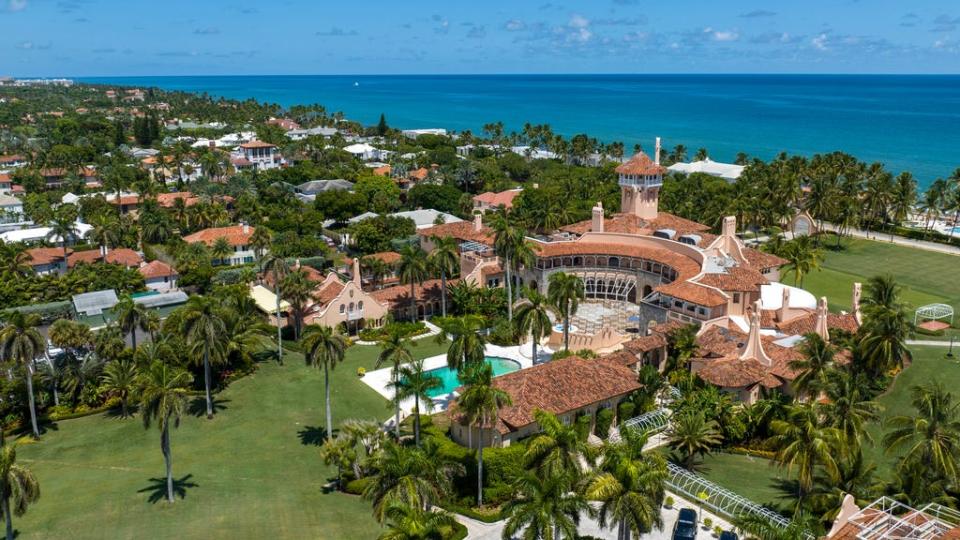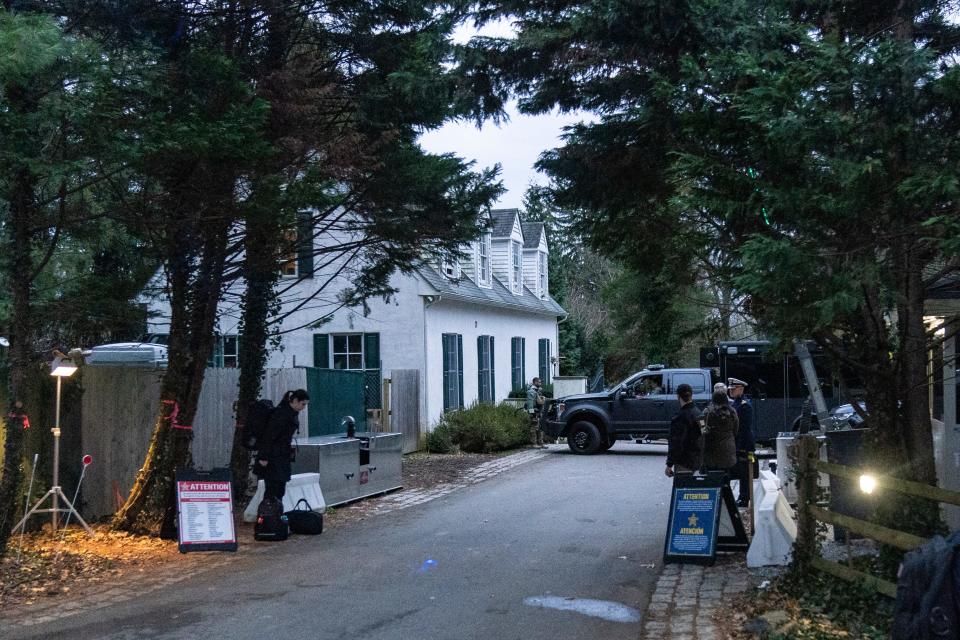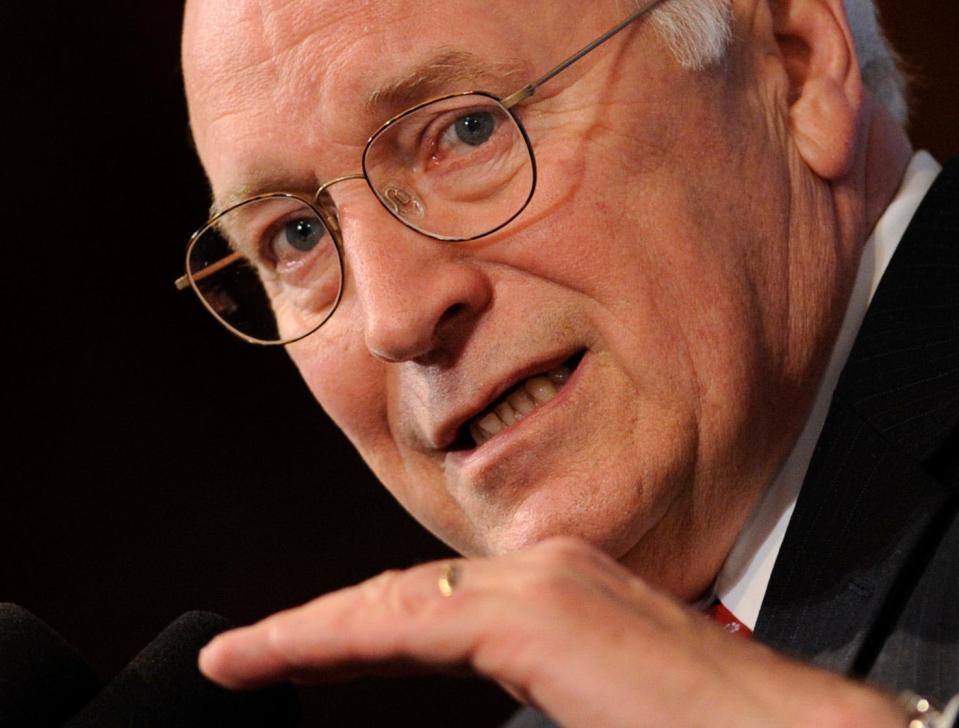After Trump, Biden, Pence, are other former presidents holding classified documents? We asked.
USA TODAY reported recently that many security analysts believe it's likely former presidents, vice presidents and their senior staff ended up with classified documents in their possession after leaving office. So far, Donald Trump, Joe Biden and Mike Pence have all been found to possess such sensitive information. As property of the U.S. government, they pose a serious threat to national security if they fall into the wrong hands.
Former security officials and analysts say it's actually not uncommon for such documents to show up in the personal files of former presidents and vice presidents, especially given the explosion of confidential, secret and top-secret information these days that is kept in both electronic and paper form. The problem is exacerbated by funding and resource shortages at the National Archives and Records Administration, which is responsible for safeguarding all former White House documents and declassifying some for eventual access by the American public under the Presidential Records Act of 1978.
USA TODAY attempted to call all of the former officials to find out if they have any sensitive material that should be turned over, and to see if they are looking through their files to find any strays. This story will be updated as additional responses come in.
Start Your Day Smarter: Sign up for our newsletter
Donald Trump
The former president's document retention issues at Mar-a-Lago are well known, including his evolving statements over whether he declassified them before leaving office and whether they're official documents – and thus property of the U.S. government – or personal possessions. The latter category would include correspondence with foreign leaders such as North Korean dictator Kim Jong-Un.
But Trump and his lawyers have not given a full public accounting of whether he has checked his many other residences, offices and properties for documents that should have been turned over to the National Archives as part of the transition of power to the Biden administration. That includes his sprawling penthouse apartment in Trump Towers in Manhattan and his Bedminster, N.J. estate and golf course.

More: Biden and Trump documents expose wider problem: Missing classified records not uncommon
Joe Biden
President Joe Biden has said he asked personal lawyers with appropriate security clearances to check for documents from his time as Barack Obama's vice president, after some were found in his personal office and, later, at his home Wilmington, Delaware. He then invited the FBI and Justice Department to do a follow-up search, prompting the discovery of more classified material.
It's not known if Biden found – or is looking for – other documents at other locations, including his Rehoboth Beach, Delaware vacation house. Biden was also a longtime U.S. senator who chaired the Senate Foreign Relations Committee, which also deals with classified information.

Barack Obama
During his eight years as president, Obama pushed for improvements to the way the National Archives safeguards and declassifies presidential material. And a top White House information security official told USA TODAY that the Obama administration had very stringent controls on document security, including going through each bankers box of material packed by White House officials at the end of Obama's term to make sure no sensitive materials were about to be taken home.
An aide to Obama told USA TODAY that former White House officials were not searching their offices for classified documents because those items had been turned over when they left office. "Consistent with the Presidential Records Act, all of President Obama’s classified records were submitted to the National Archives upon leaving office," according to a statement from Obama's office. "NARA continues to assume physical and legal custody of President Obama’s materials to date."
George W. Bush
Former president George W. Bush generated a massive volume of sensitive information during his eight years in office, including internal deliberations about the global war against terrorism in the aftermath of the Sept. 11, 2001 attacks, the U.S. wars in Afghanistan and Iraq and diplomatic efforts with Russia and China.
An aide to Bush said that they too were not searching Bush's offices for classified documents because those items were turned over when they left office. “That search was conducted before he left the White House, when all of his Presidential records – classified and unclassified – were turned over to the National Archives," said a statement from Bush's office.
Dick Cheney
The father of former GOP Rep. Liz Cheney of Wyoming, Cheney was deeply involved in all aspects of the Bush presidency, especially its very active national security portfolio. He also was privy to classified White House documents from his time in the administrations of Richard Nixon and Gerald Ford, including serving as White House chief of staff from 1975 to 1977.
Some documents that Cheney worked with or originated in his role as vice president are held at Bush's presidential library. But his official Vice Presidential records are preserved and made publicly available for research through the Archival Operations Division, a part of the National Archives and Records Administration. He did not respond immediately to a request for comment from USA TODAY.

Bill Clinton
One of the more globe-trotting of recent presidents, the Arkansas Democrat was known to be a keeper of mementos from his many diplomatic overtures. Those, just like Trump’s letters with Kim Jong-Un that he didn't want to give up, would likely be considered classified and all of them are property of the U.S. government under the Presidential Records Act. The National Archives, though, routinely loans them to presidential libraries so the public can see them, including Clinton's in Little Rock, Arkansas.
In a statement to Insider, Clinton's office said, "All of President Clinton's classified materials were properly turned over to NARA in accordance with the Presidential Records Act."
Al Gore
Clinton's vice president, Al Gore of Tennessee, was – like Cheney – a very active second in command, and likely generated a large volume of classified information as the administration's point person on numerous national security issues.
Like other vice presidents, Gore's Vice Presidential are preserved and made publicly available for research through the Archival Operations Division, a part of the National Archives and Records Administration. A Gore spokesperson told CNN that, “When leaving the White House in January 2001, Vice President Gore and his staff turned over materials to NARA in accordance with the Presidential Records Act. No classified materials have been discovered in the 22 years since VP Gore left public office.”
George H.W. Bush
Bush, the father of George W. Bush and former CIA director, was another one-termer like Trump but with a broad national security portfolio. He also served as vice president to Ronald Reagan during a particularly controversy-laden administration, including the Iran-Contra scandal that sent some White House officials to prison. The majority of his presidential papers are stored at the George H.W. Bush Presidential Library and Museum on the grounds of Texas A&M, in College Station, Texas.
The elder Bush's handling of his presidential papers surfaced last October when Trump said at a Nevada rally that Bush "took millions of documents to a former bowling alley and former Chinese restaurant where they combined them. So they're in a bowling alley slash Chinese restaurant."
The National Archives denied that and similar claims by Trump about other presidents' alleged mishandling of documents, saying in a statement that it had securely moved presidential records from the George H. W. Bush, Barack Obama, Bill Clinton, George W. Bush and Ronald Reagan administrations to temporary facilities it leased near the location of presidential libraries that "met strict archival and security standards" and were supervised and staffed exclusively by agency employees.
“Reports that indicate or imply that those Presidential records were in the possession of the former presidents or their representatives after they left office, or that the records were housed in substandard conditions, are false and misleading,” the statement says.

Dan Quayle
Quayle, the elder Bush's vice president, told CNN everything was turned over to the National Archives and he never had any issues with finding classified papers after he left office in 1993.
Jimmy Carter
Even though Carter signed the Presidential Records Act in 1978, it did not apply to records of his White House and administration, instead going into effect when Ronald Reagan was inaugurated in 1981.
Carter found at least one batch of classified materials at his home in Plains, Georgia and returned them to the National Archives, according to the Associated Press.
Contributing: David Jackson
This article originally appeared on USA TODAY: Do other former presidents have classified documents? We asked them.


